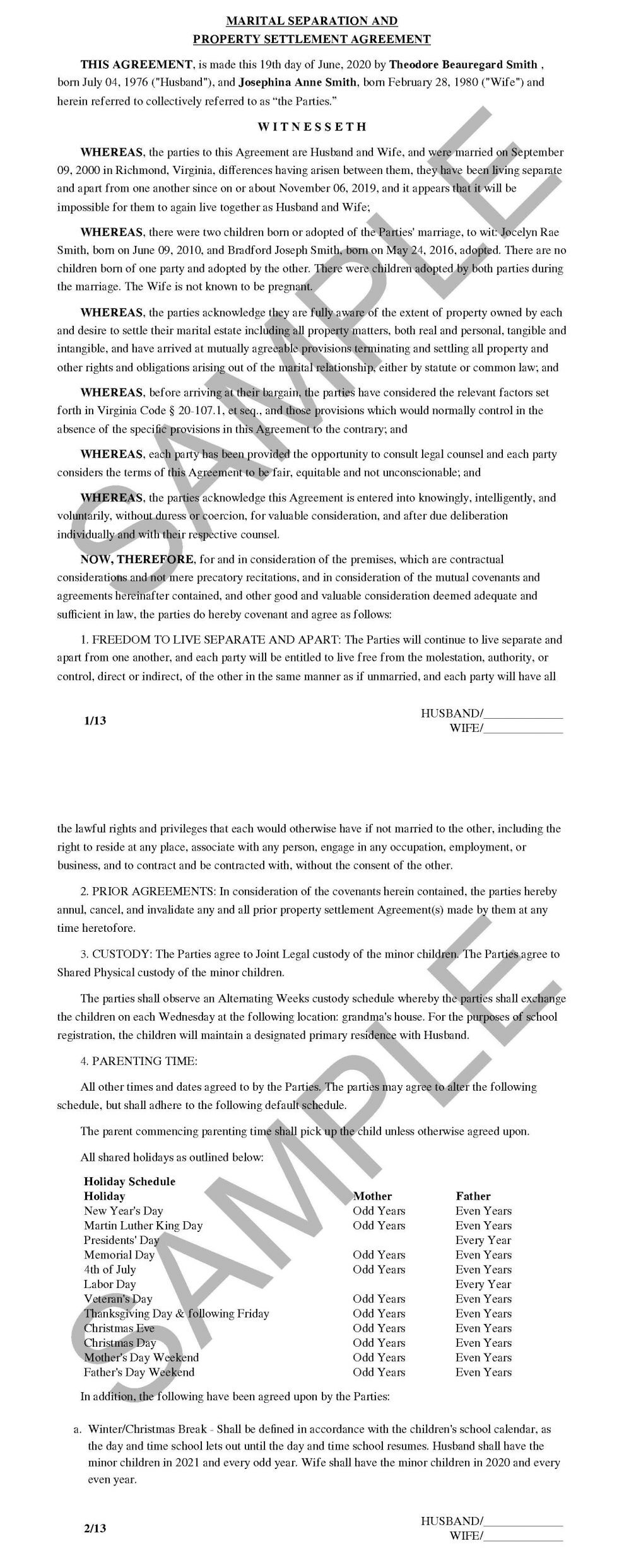Contested vs. Uncontested Divorce In Virginia
In Virginia, as in many other jurisdictions, divorces can be categorized as either contested or uncontested. When it comes to contested vs. uncontested divorce in Virginia, the key distinction between the two lies in the level of agreement between the spouses regarding the terms of the divorce.
1. Contested Divorce:
A contested divorce occurs when the spouses are unable to reach an agreement on one or more key issues, such as property division, spousal support, child custody, and child support.
The Process: In a contested divorce, the resolution of these issues typically requires court intervention. Both parties present their arguments and evidence, and a judge ultimately makes decisions on matters where the spouses cannot agree.
The Timeline: Contested divorces often take longer to resolve because of the legal proceedings involved, including discovery, hearings, and potentially a trial.
2. Uncontested Divorce:
An uncontested divorce happens when both spouses are able to agree on most relevant issues without the need for court intervention, or they agree to reserve the issues for determination at a later date.
The Process: In an uncontested divorce, the spouses work together to come to an agreement on the major issues. Then, they typically hire a law firm to draft a comprehensive agreement that outlines the terms of the divorce, including property division, alimony (if applicable), child custody, and support. This agreement is then submitted to the court with the divorce paperwork.
The Timeline: Uncontested divorces generally proceed more quickly through the legal system since there is no need for protracted courtroom battles. The timeline can vary but is often much shorter than contested cases.


